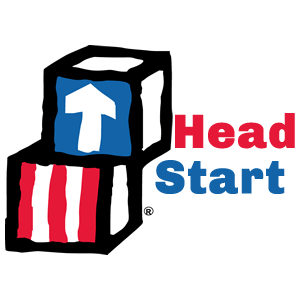The web Browser you are currently using is unsupported, and some features of this site may not work as intended. Please update to a modern browser such as Chrome, Firefox or Edge to experience all features Michigan.gov has to offer.
Partners
Partner Contacts
The Michigan Child Development and Care (CDC) Program partners with many local, state, and federal agencies to provide different types of assistance and resources to the public for child development and care. The following list of CDC Partners gives a brief overview of each partner's role within the program and information on how to contact them.
.png?h=204&w=400&rev=d51acc4d00534734924c51b53b8d3889&hash=4962EEA0C63FD3CDF8BAB871FF35FF50)
Great Start to Quality (Michigan’s Quality Recognition and Improvement System)
greatstarttoquality@ecic4kids.org
1-877-614-7328
Great Start to Quality is Michigan’s system, which sets the quality standards and evaluates the quality of early care and education programs. It is funded by the Department of Lifelong Education, Advancement, and Potential. Great Start to Quality includes 10 Resource Centers across the state that work with programs to take steps to improve their quality. Great Start to Quality also shares information about programs with families and helps families select the right program for their needs.

Choosing to work with infants and toddlers is a very rewarding career! Infant and toddler educators are remarkable individuals who help children aged birth to three form strong bonds and attachments, develop their physical, emotional, and cognitive growth, and build partnerships with families.
Information on an opportunity to obtain an optional Michigan Infant and Toddler Caregiver Certificate (MI-ITTC) can be found at Michigan ITCC - Great Start to Quality
Early Childhood Investment Corporation (ECIC)
www.ecic4kids.org
info@ecic4kids.org
517-371-9000
Created in 2005 to be a statewide leader in early childhood, the Early Childhood Investment Corporation collaborates to increase public and private investment in the earliest years, to elevate issues affecting young children and their families, and continuously improve Michigan’s comprehensive early childhood system, ensuring every child has the opportunity to succeed in school and in life.

www.michigan.gov/michildcare
Child Care Licensing Bureau (CCLB)
The Child Care Licensing Bureau, a part of the Department of Licensing and Regulatory Affairs, conducts onsite inspections to determine compliance with state law and licensing rules, provides technical assistance and consultation to improve the quality of service and investigates complaints alleging violations of licensing rules or law. The Child Care Licensing Bureau regulates family child care homes (1 to 6 children), group child care homes (7 to 12 children) and child care centers. Call CCLB at 1-866-685-0006 to get more information on becoming licensed or visit www.michigan.gov/michildcare for more information about licensed child care.

https://newmibridges.michigan.gov/
MI Bridges is a web portal to provide Michigan's citizens with access to the benefits they need. Apply for child care assistance here as well as check the status of your benefits.

Teacher Education And Compensation Helps® (T.E.A.C.H.)
http://www.miaeyc.org/professional-development/t-e-a-c-h-scholarships/
TEACH@miaeyc.org
1-866-MITEACH (1-866-648-3224)
This is a scholarship program for providers working in a licensed or registered early childhood program. This program helps cover most of the tuition and book costs, provides a travel allowance, and offers release time and a bonus for ongoing educational attainment. Providers must continue to work in the early childhood field at their child care setting or home program. Scholarships are available for associate or bachelor degrees in Early Childhood Education or Child Development and to help cover the cost of the Child Development Associate (CDA) fees.

Michigan Registry
833-386-9238
MiRegistry is a statewide data system for early childhood and out of school time providers. MiRegistry offers a statewide training calendar to support child care providers with finding training to meet their professional development needs. A provider can set up an online profile in the registry to track their employment, education, and training history.

Office of Head Start (OHS) | HeadStart.gov
517-930-4387
Head Start is the federal school readiness program supporting low-income children and their families. Head Start and Early Head Start serve children birth through Kindergarten entry in centers, child care partner locations and in their own homes. In addition to infants and toddlers, Early Head Start also serves pregnant women. Head Start and Early Head Start provide comprehensive services, including health, early learning and family-well-being, that prepare children for success in school and beyond. Visit this site for more information and to find the Head Start or Early Head Start program near you.

www.michigan.gov/cacfp
MDE-CACFP@michigan.gov
517-241-5353
The Child and Adult Care Food Program (CACFP) is a federal program administered by the Michigan Department of Education (MDE). This program may help child care centers, group and family child care homes and unlicensed providers who provide child care in their home and not the home of the child with the cost of meals and snacks given to children in their care. Visit the site listed above to find the CACFP sponsor in your area. For Healthier Child Care Environments Toolkits, please visit http://www.canr.msu.edu/snap_ed/childcare/